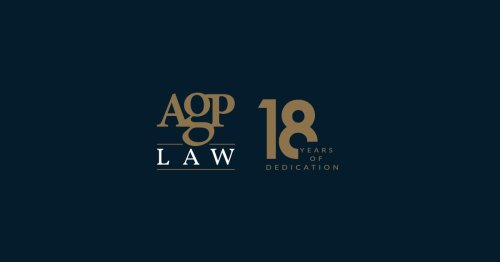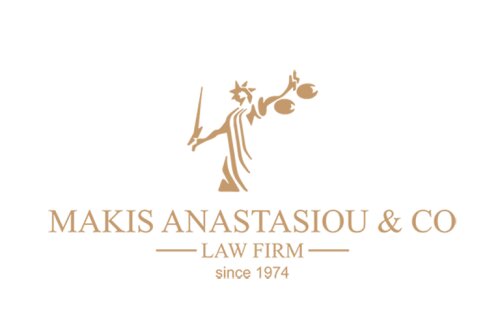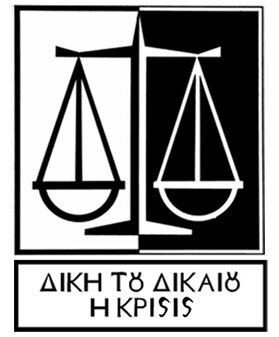Best Criminal Litigation Lawyers in Limassol
Share your needs with us, get contacted by law firms.
Free. Takes 2 min.
List of the best lawyers in Limassol, Cyprus
About Criminal Litigation Law in Limassol, Cyprus
In Limassol, Cyprus, criminal litigation is managed according to Cyprus law. Both the Cypriot Constitution and the European Convention on Human Rights govern the rights and obligations surrounding criminal litigation. These pieces of legislation enforce important aspects like the right to a fair trial, innocence presumption, and defence rights. Criminal offenses are divided into two categories: Misdemeanors and Felonies, each governed differently and have different penalties.
Why You May Need a Lawyer
Criminal litigations can be complex, especially when they involve cross-border or international elements. You may need a lawyer if you're charged with a crime, whether it's a minor offense like a traffic violation or serious crimes like assault, theft or drug trafficking. Having the right legal representation is crucial to ensuring your rights are protected and you obtain the best possible outcome if the case goes to trial.
Local Laws Overview
Local criminal law in Cyprus is heavily influenced by English law due to its colonial history. However, the island broke away from many English legal traditions in 1960 and has fashioned its own legal system from a range of sources, such as Greek law. Crimes such as theft, assault, drug trafficking, embezzlement, manslaughter, and murder are pursued under criminal litigation law in Limassol. The penalties for these crimes can range from fines and community service to imprisonment.
Frequently Asked Questions
1. Are there differences between a misdemeanor and a felony in Limassol?
Yes. Misdemeanors generally refer to lesser offenses that typically result in fines, community service, or a short jail term. Felonies, on the other hand, usually involve a sentence in a state prison for more than one year.
2. How long does a criminal trial take in Limassol?
The length of a criminal trial can vary greatly. It depends on several factors including the complexity of the case, the volume of evidence, and whether a plea deal is accepted.
3. Can I represent myself in a criminal trial?
While it is technically possible, it is strongly discouraged to represent oneself in a criminal trial, especially if you are facing serious charges. Criminal law is complex and navigating it successfully requires skilled representation.
4. How is bail determined?
Bail is determined by the court based on the seriousness of the offense, the risk of the accused absconding, and the suspect’s ties to the community.
5. Can foreigners also be tried under Cyprus Criminal Law?
Yes. Cyprus law applies to everyone within its jurisdiction, including foreign nationals. If a foreigner commits a crime in Cyprus, they will be prosecuted under the local legal system.
Additional Resources
For additional resources related to Criminal Litigation law, you can consult the Cyprus Bar Association, the Ministry of Justice and Public Order, and the European Court of Human Rights. These institutions provide helpful information on the Cypriot legal system and rights related to criminal charges.
Next Steps
If you require legal assistance in a criminal litigation matter, the first step is to identify and engage a reputable lawyer, preferably one specializing in criminal law. Schedule a consultation and prepare all relevant documentation so your lawyer can give detailed and accurate advice. Remember that time may be of the essence in such matters, therefore it is critical to act as soon as possible.
Lawzana helps you find the best lawyers and law firms in Limassol through a curated and pre-screened list of qualified legal professionals. Our platform offers rankings and detailed profiles of attorneys and law firms, allowing you to compare based on practice areas, including Criminal Litigation, experience, and client feedback.
Each profile includes a description of the firm's areas of practice, client reviews, team members and partners, year of establishment, spoken languages, office locations, contact information, social media presence, and any published articles or resources. Most firms on our platform speak English and are experienced in both local and international legal matters.
Get a quote from top-rated law firms in Limassol, Cyprus — quickly, securely, and without unnecessary hassle.
Disclaimer:
The information provided on this page is for general informational purposes only and does not constitute legal advice. While we strive to ensure the accuracy and relevance of the content, legal information may change over time, and interpretations of the law can vary. You should always consult with a qualified legal professional for advice specific to your situation.
We disclaim all liability for actions taken or not taken based on the content of this page. If you believe any information is incorrect or outdated, please contact us, and we will review and update it where appropriate.















